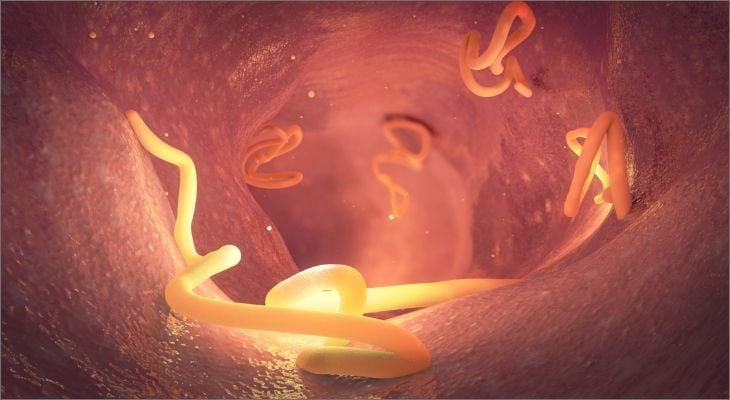
Tapeworms live in the digestive tracts of vertebrates as adults and often in the bodies of various animals as juveniles. In a tapeworm infection, adults absorb food predigested by the host, so the worms have no need for a digestive tract or a mouth. Large tapeworms are made almost entirely of reproductive structures with a small "head" for attachment. Symptoms vary widely, depending on the species causing the infection. The largest tapeworms can be 20 m or longer. Tapeworm awareness is importance to humans because they infect people and livestock. Two important tapeworms are the pork tapeworm and the beef tapeworm